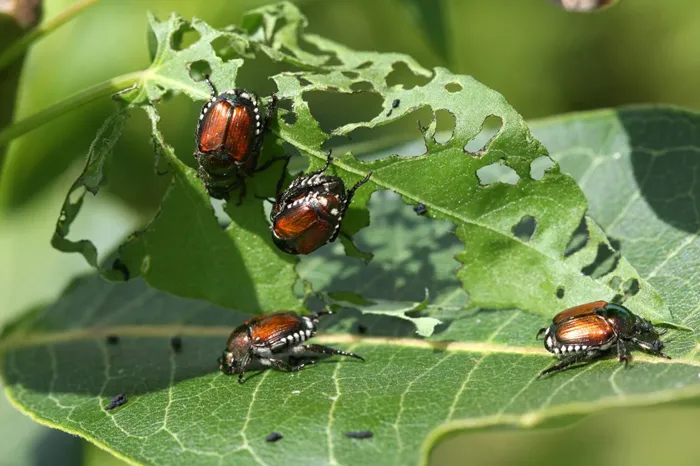Gardening is a joyful and fulfilling activity, but it can be frustrating when pests invade and damage your plants. Insects like aphids, caterpillars, and beetles, as well as animals like rabbits and birds, can harm your garden. However, there are effective and natural ways to protect your garden without using harmful chemicals. This guide will provide simple and practical methods to keep pests away and maintain a healthy garden.
1. Keep Your Garden Clean
A tidy garden is less attractive to pests. Dead leaves, weeds, and fallen fruits can provide shelter and food for insects and rodents. Regularly remove debris and weeds to reduce hiding spots for pests. Prune overgrown plants to improve air circulation, which helps prevent fungal diseases. By maintaining cleanliness, you create an environment that is less inviting to pests.
2. Use Companion Planting
Companion planting involves growing certain plants together to enhance growth and deter pests. Some plants naturally repel insects due to their scent or chemical properties. For example:
Marigolds repel aphids and nematodes.
Basil deters flies and mosquitoes.
Mint keeps away ants and cabbage moths.
Nasturtiums repel squash bugs and aphids.
By strategically placing these plants in your garden, you can naturally reduce pest populations.
3. Attract Beneficial Insects and Animals
Not all insects are harmful; some are beneficial and help control pest populations. Encouraging these natural predators can be an effective pest control strategy. Examples include:
Ladybugs feed on aphids and other soft-bodied insects.
Lacewings consume a variety of pests, including caterpillars and whiteflies.
Birds eat insects and can be attracted by installing birdhouses or feeders.
Frogs and toads consume slugs, beetles, and other garden pests.
Planting flowers like yarrow, cosmos, and sunflowers can attract these beneficial creatures to your garden.
4. Install Physical Barriers
Physical barriers can prevent pests from reaching your plants. These include:
Row covers: Lightweight fabrics that protect plants from insects while allowing sunlight and water to pass through.
Netting: Fine mesh that keeps out birds and larger insects.
Fences: Prevent animals like rabbits and deer from entering your garden.
Mulch: Suppresses weeds and can deter soil-dwelling pests.
Using these barriers can significantly reduce pest damage.
5. Apply Natural Repellents
Natural repellents are safe alternatives to chemical pesticides. Some effective options include:
Neem oil: Derived from the neem tree, it disrupts the life cycle of many pests.
Insecticidal soap: Made from natural ingredients, it kills soft-bodied insects like aphids.
Garlic spray: A homemade mixture that repels various insects.
Peppermint oil: Deters ants, aphids, and other pests.
Regular application of these repellents can help maintain a pest-free garden.
6. Encourage Healthy Soil
Healthy soil leads to strong plants that are more resistant to pests. To improve soil health:
Compost: Adds nutrients and beneficial microorganisms.
Mulch: Retains moisture and suppresses weeds.
Crop rotation: Prevents the buildup of soil-borne pests and diseases.
By focusing on soil health, you create a robust foundation for your plants.
7. Practice Regular Monitoring
Regularly inspect your plants for signs of pest activity. Look for holes in leaves, discolored spots, or visible insects. Early detection allows for prompt action, preventing infestations from spreading. Handpick larger pests like caterpillars and beetles when spotted. Consistent monitoring is key to effective pest management.
8. Use Diatomaceous Earth
Diatomaceous earth is a natural powder made from fossilized algae. It damages the exoskeletons of insects, causing them to dehydrate and die. Sprinkle it around the base of plants to deter crawling insects like slugs and beetles. Ensure it remains dry for maximum effectiveness.
9. Implement Crop Rotation
Growing the same crops in the same location each year can lead to a buildup of pests and diseases. Rotating crops disrupts pest life cycles and maintains soil fertility. Plan your garden layout to change plant families’ locations annually.
10. Consider Raised Garden Beds
Raised beds can help control pests by elevating plants above ground level. They allow for better soil drainage and can be fitted with protective barriers. Raised beds also make it easier to manage soil quality and reduce weed growth.
Conclusion
Protecting your garden from pests doesn’t require harmful chemicals. By maintaining cleanliness, using companion planting, encouraging beneficial insects, and implementing natural repellents and barriers, you can create a healthy and thriving garden. Regular monitoring and soil care further enhance your garden’s resilience. With these strategies, you can enjoy the fruits of your labor without the frustration of pest damage.
Related Topics:


